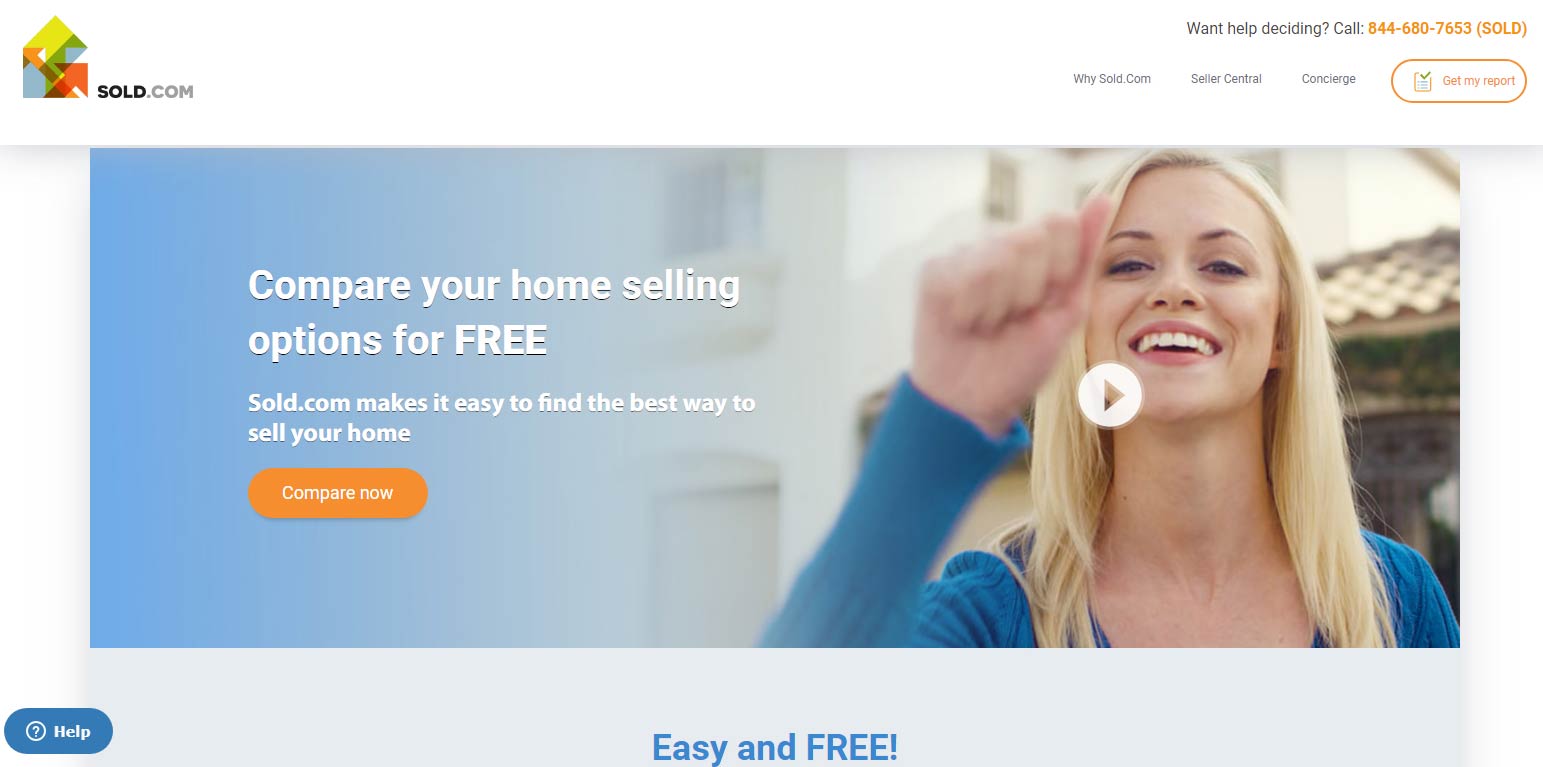Compare Sold.com and Offerpad.com
For Sellers
For Sellers
Answer: Sold.com is a referral fee network that enables broker-to-broker collusion with use of blanket referral agreements while Offerpad.com is a direct home cash buyer that buys select homes off-market with cash offers and resells them at a profit to homebuyers
Selling with Sold.com
WARNING: Unlawful Kickbacks, Broker-to-Broker Collusion, False Marketing, Wire Fraud, Price Fixing.
Sold.com) is a broker-to-broker collusion scheme, where "partner agents" unlawfully agree to pay massive kickbacks to receive your information and engage in market allocation, consumer allocation, false advertising, unlawful kickbacks, wire fraud, and price-fixing practices in violation of, inter alia, 18 U.S.C. § 1346, 18 U.S.C. § 1343, 15 U.S.C. § 1, 15 U.S.C. § 45, 12 U.S.C. § 2607, 12 C.F.R. § 1024.14. As a consumer, you will always significantly overpay for Realtor commissions subject to hidden kickbacks and pay-to-play steering promoted in this scheme.
United States federal antitrust laws prohibit consumer allocation and blanket referral agreements between real estate companies.
Be smart; do not allow your information to be "sold as a lead" to a double-dealing Realtor in exchange for massive commission kickbacks paid from your future home sale, or your future home purchase.
Sold.com is a referral fee network designed to collect fees by matching consumers with local real estate agents willing to participate. Sold.com operates as a licensed real estate brokerage in California under BRE License #01937601, but it does not produce any services that are typically offered by real estate agents and does not represent consumers when selling real estate in any State.
When consumers submit information to Sold.com, this information is simply sold to real estate agents who are willing to pay for it with a 30% share of their commission.
Sold.com Pricing
Sold.com revenue comes from referral fees.
Listing Services
- This Service Does Not Represent Sellers
Buyer's Agent Services
- This Service Does Not Represent Buyers
Sold.com Editor's Review:
On paper, Sold.com seems to have a great idea – to provide its users with the best way to sell a home, but in reality, it is a referral network designed to steer consumers toward agents and other services willing to pay a cut of their commission back into the network.
Sold.com states that it is an “unbiased” and consumer-focused service, but the actual model turns out to be much less effective - Sold.com is a California licensed real estate broker that collects a 30% referral fee from all real estate agents that participate.
This fee makes it hardly a free service for anyone since referral fees are inevitably passed down to consumers. More importantly, Sold.com applies this pay-to-play bias towards all matching results, meaning, only real estate agents that have agreed to pay a referral fee are displayed in match results for consumers.
Sold.com audits all transactions because it needs to find out how much money real estate agents receive in commissions, inevitably collecting private details of consumer’s agreement for home purchase or sale.
Sold.com plays fees down to consumers - it states directly that the service is 100% free, but at the same time, it rigidly locks every participating real estate agent into 30% referral fee attached to the back-end of every contract. As a licensed real estate agent that doesn’t perform any real estate services or takes any responsibility for the transaction, it is not entirely clear how this process works under the Business and Professions Code and RESPA.
Clearly, real estate agents only sign-up with Sold.com because the price of the referral fee can be easily incorporated into their client's agreement with excessive commissions. Sold.com receives the second lowest score because this service is clearly biased and it claims to provide the complete opposite of what it actually does.
Where does Sold.com operate?
Buying and Selling with Offerpad
Offerpad is a direct home buyer that makes cash offers to sellers as it considers the condition of a home, improvements, home's upgrades, and required repairs.
In determining the offer, Offerpad discounts the offer amount from the estimated retail value after it’s fully renovated.
Offerpad Pricing
Offerpad makes money with fees and a difference between buying and selling each home. Offerpad claims service fees vary between 6% to 10%, plus an additional 1% to 3% of the purchase price in closing costs.
Sellers can also expect to receive an offer that has a built-in margin of 5% to 10% between the market price today and what Offerpad plans to flip the home in the open market.
In summation of all these fees, an offer equal to 80% of home value is reasonably expected from this type of sale after fees and cost of the repairs and resale.
Listing Services
- This Service Does Not Represent Sellers
Buyer's Agent Services
- This Service Does Not Represent Buyers
Offerpad.com Editor's Review:
Offerpad will buy a home at a price that is below market value due to necessary repairs, renovation, and other factors. After it buys the home, it renovates and resells it for a profit to another buyer or another company that rents it out to qualified tenants. With low offer price, comes a convenience of an all-cash closing when selling a home. Offerpad typically provides a conditional offer within 24 hours.
Offerpad will perform a free, on-site inspection of your home within 15 days of the signed conditional agreement. If Offerpad finds something it doesn't like and the sellers decline to make any requested repairs or issue a Offerpad credit it demands, Offerpad can then choose to cancel the contract or may determine that it still wants to move forward with the purchase of the home. If Offerpad elects to cancel the contract, there is no penalty to either party.
Offerpad does not make offers for most homes, it will only make offers for single-family residential homes in areas where it operates, including condos and townhomes, built after 1960, with a value of no more than $500,000-$600,000 as well as fair conditions without any major repairs required. Offerpad will not consider homes with significant foundation, structural or other condition issues.
Typically, Offerpad uses the following factors when determining the offer: existing condition of the home including repairs needed, time it will take to finish needed repairs, value of a home compared to other comparable homes in the area, real estate commission required to resell, costs associated with maintaining a home during repairs, including taxes, payments, insurance, utilities and homeowner dues.
The main disadvantage of using Offerpad is high loss in homeowners' equity. Offerpad is a "heavy" model, ready to buy homes in all-cash transactions. As any real estate investor, Offerpad is susceptible to losing money in any given transaction. Offerpad model further suffers from a "double expense" such as paying all the normal transaction costs that come with selling a home—including a commission to a buyer's agent (3%), concessions to buyer, holding costs, maintenance fees, taxes and other costs to list and market the home.
This model is prone to a number of risk factors, high operational costs and a continued need for higher-than-average Return on Investment (ROI) with each flip.
Offerpad is not legally bound to represent consumers, its main legal obligation is to its stakeholders. Moreover, because most homes in the United States are financed, homeowners own only partial net equity in their home.
Banks receive the same amount of the remaining mortgage sum regardless of how any given home is sold, or how much of homeowners' net equity is lost in the transaction with Offerpad.
Today, there are a number of highly qualified real estate agents who offer competitive listing rates and flat fee listings across the United States. Unless a situation absolutely requires a quick sale, Geodoma recommends that consumers first consider using a licensed real estate agent working on competitive terms to properly list their homes on the open market before turning to Offerpad option.



